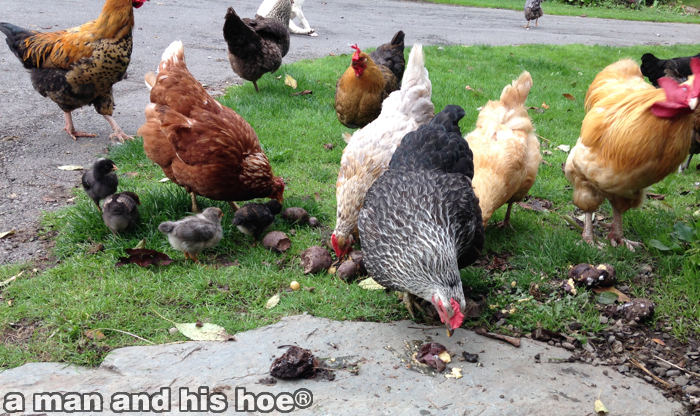
While cleaning some freshly dug potatoes, I tossed a few handfuls of the rejects on the grass. It took just a few seconds to draw a crowd of chickens. Even Lucky and her little ones came running.
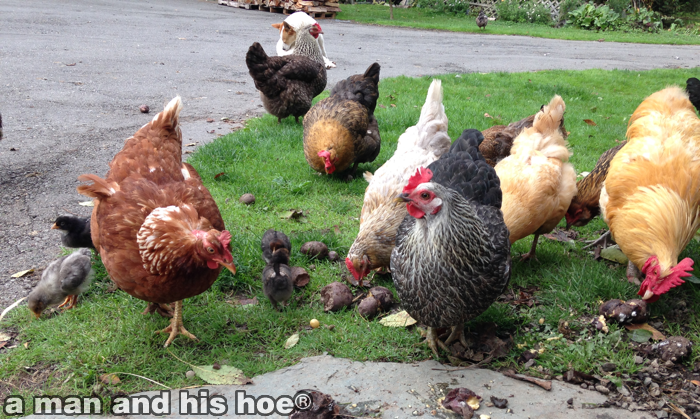
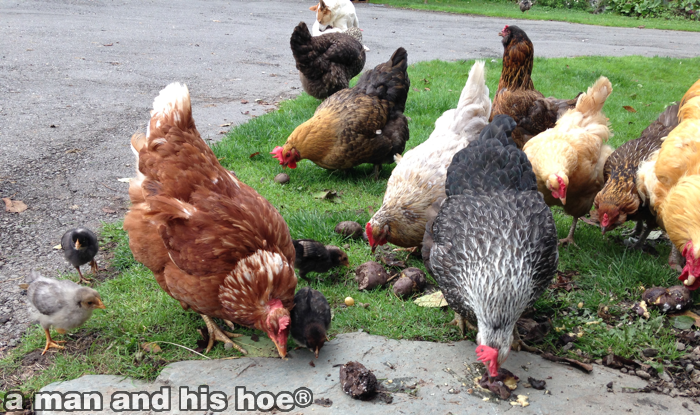
every day is a good day

While cleaning some freshly dug potatoes, I tossed a few handfuls of the rejects on the grass. It took just a few seconds to draw a crowd of chickens. Even Lucky and her little ones came running.


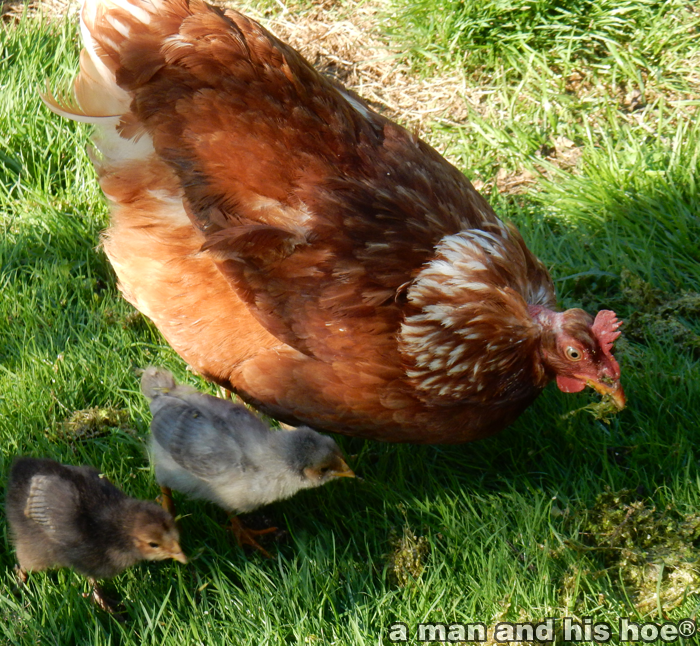
Lucky spotted me scooping duckweed out of the pond for the chickens. She’s come running to give her chicks a treat. All the chickens go nuts for fresh duckweed. Not only do they like the fresh green duckweed, they scratch through it to pick out all the bugs that live in the duckweed.
I never tire watching the interaction between the chicks and their mother. All day long, the chicks are watching every move she makes. All day long, they are at her feet or scurrying close to her. When she finds something good to eat, their beaks are immediately next to hers. When she rests, they rest. Her chicks are now two weeks old.
Sadly, on Saturday she lost one of her five chicks. I was in the kitchen looking out and saw her chase a Coopers hawk. I ran out to check on her. She was safe and so were four of her chicks. One was missing.
Giving chicks as much freedom and space as I do has its consequences. It’s possible to protect them from land predators with adequate fencing, but it’s a challenge to keep them safe from hawks and eagles. The dogs do a pretty good job, chasing the bigger raptors away. It’s the smaller raptors that manage to sneak in and snatch the chicks. Maybe a fleet of heat seeking drones could detect hawks and eagles and automatically chase them away, or at least alert us ground animals to their presence.
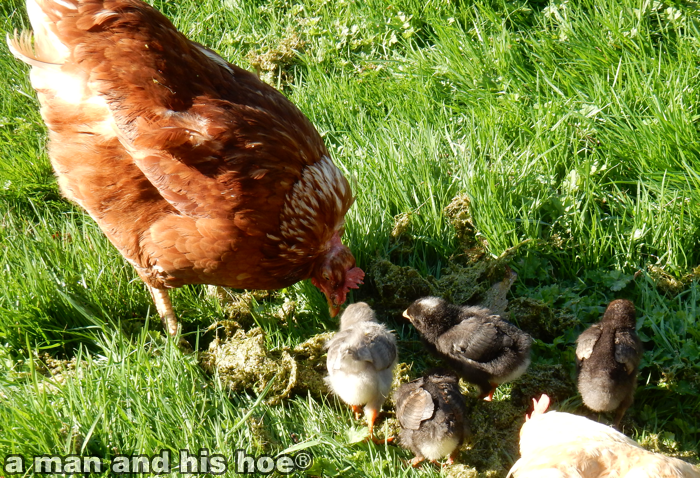
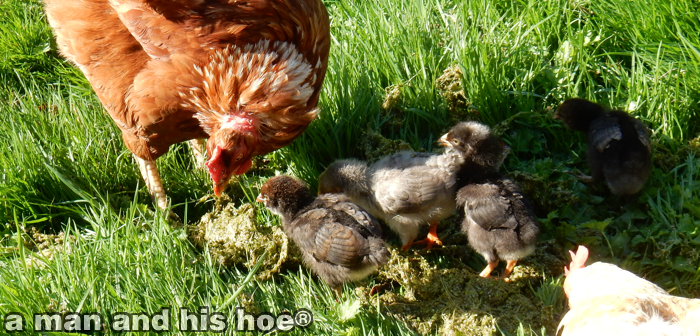
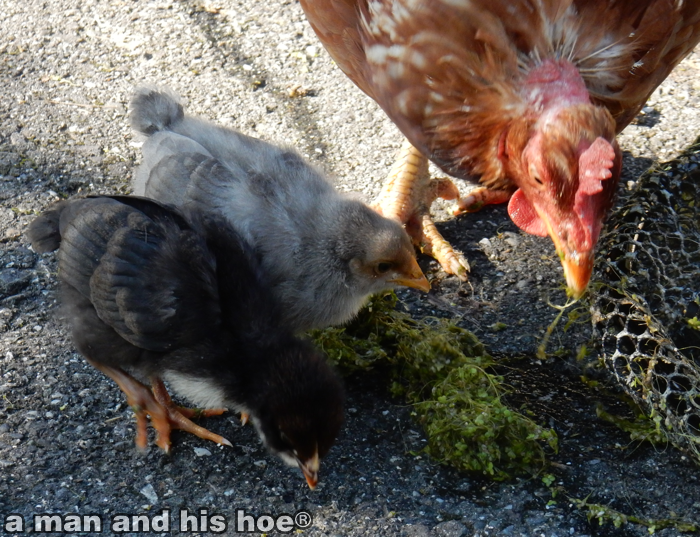
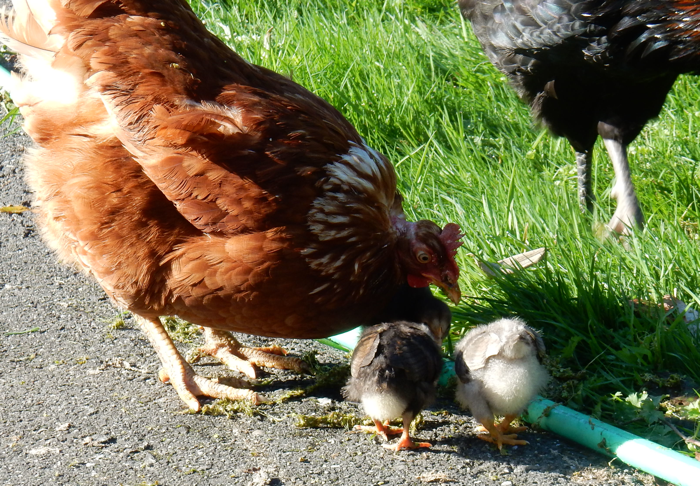
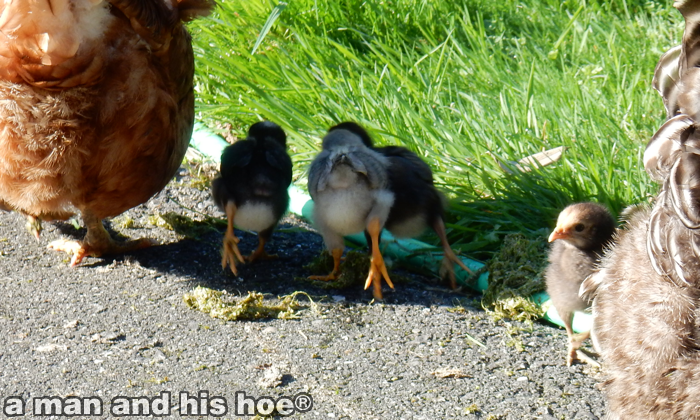
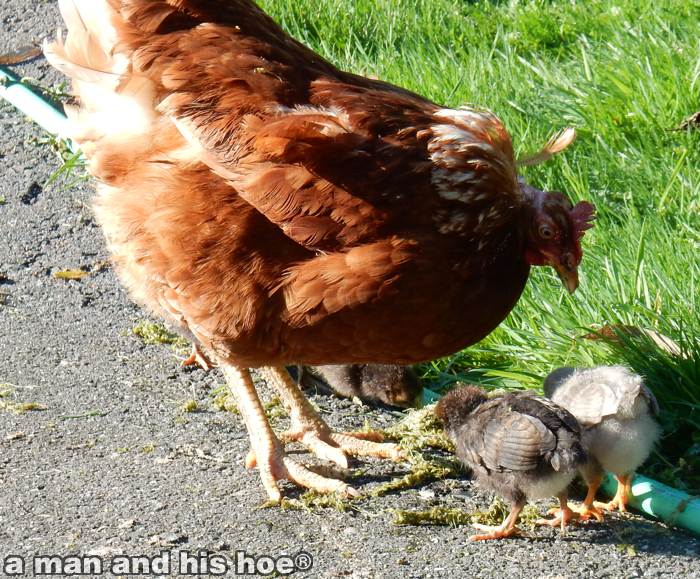
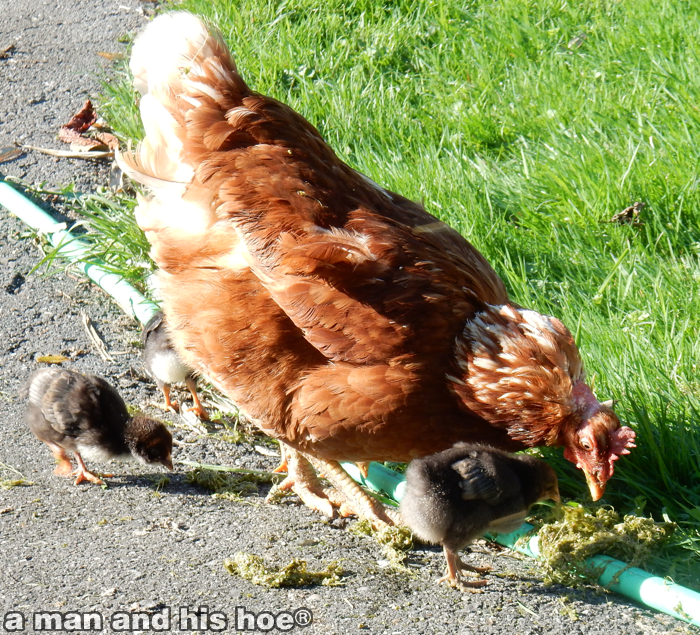
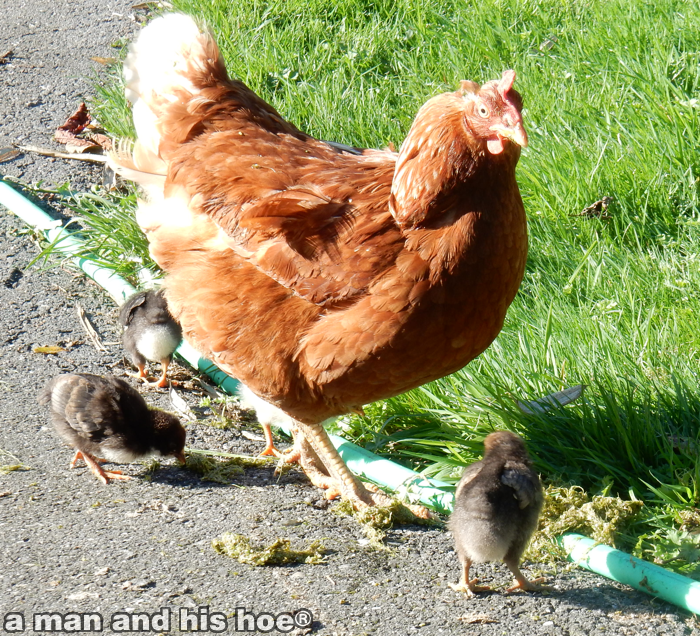
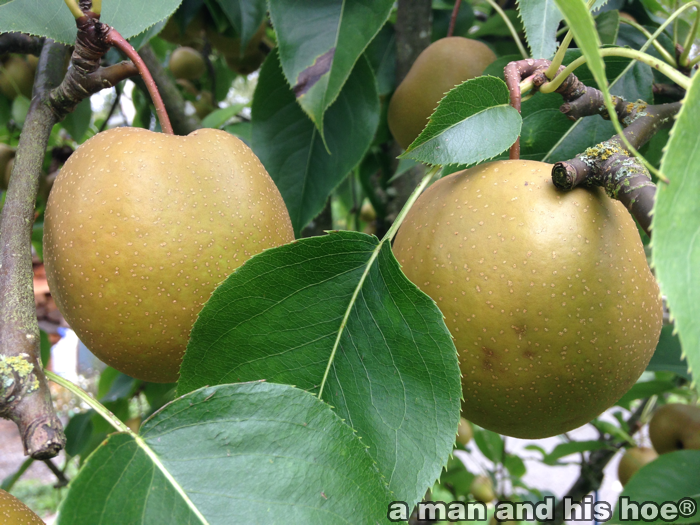
This year, the Asian Pear tree is loaded with fruit. Peeled and sliced, I love how juicy and crunchy they are.
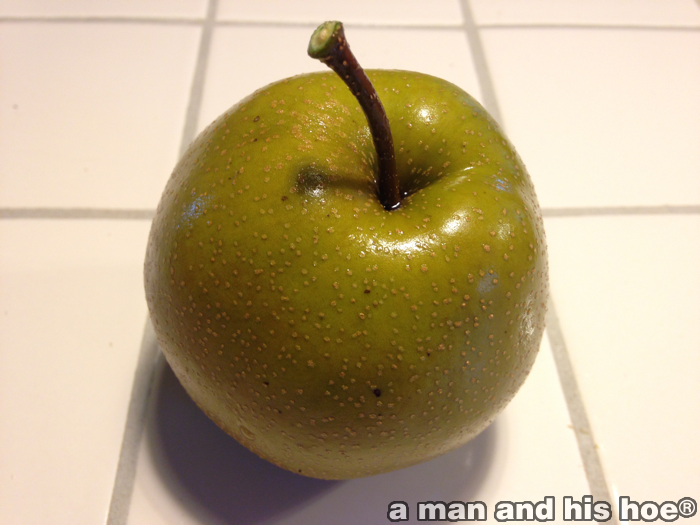
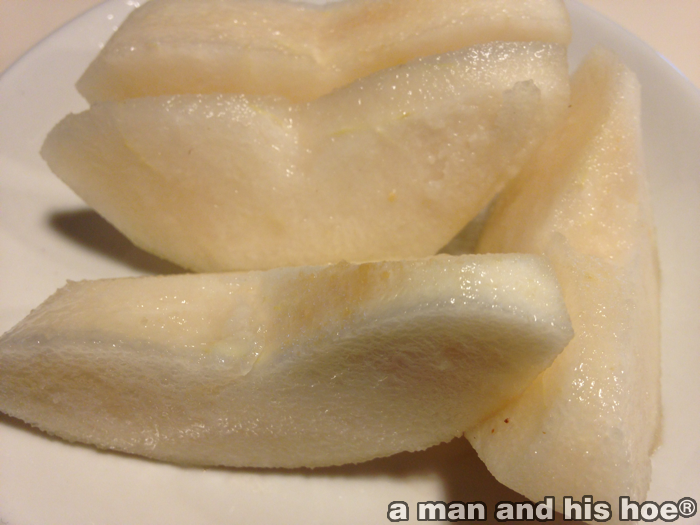
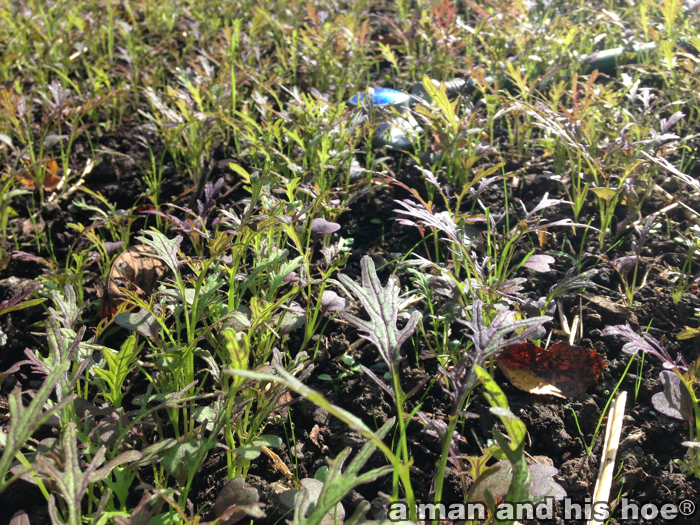
A fresh crop of Ruby Streaks are on their way. They love the cooler weather. The white Tennouji Kabura (turnips) are ready to be pulled. Left to overwinter, they will bloom in the spring.
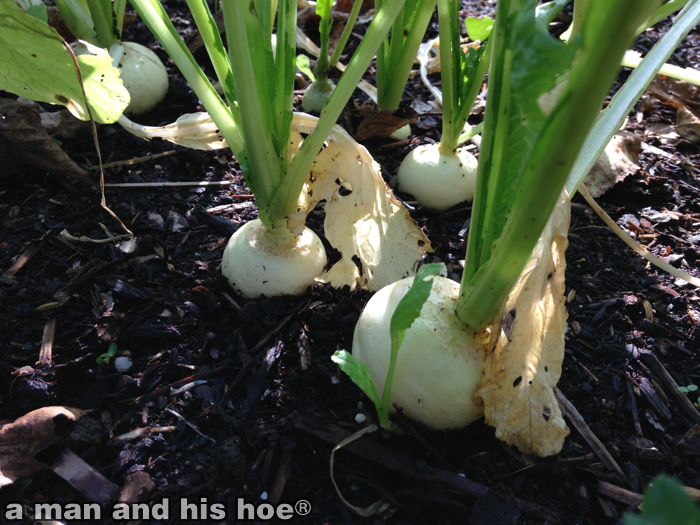
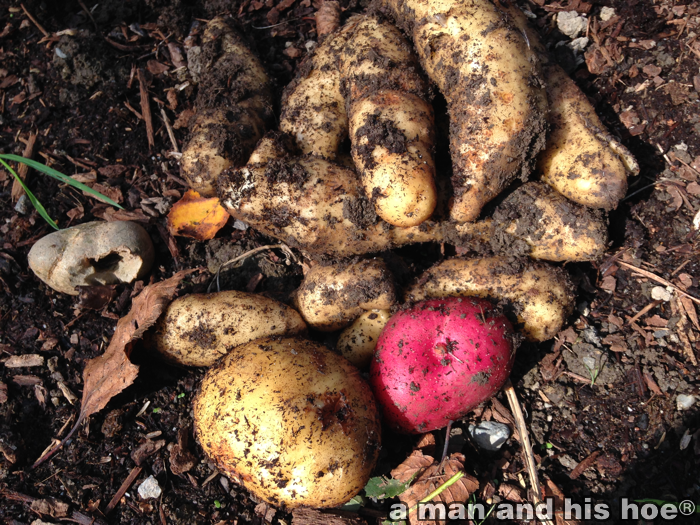
Without soil, none of these wonderful foods would be possible. Every time I dig the soil, and harvesting potatoes requires digging, I encounter countless worms, bugs, spiders, and millions of organisms making a healthy soil possible. The complexity of life in the soil is amazing.
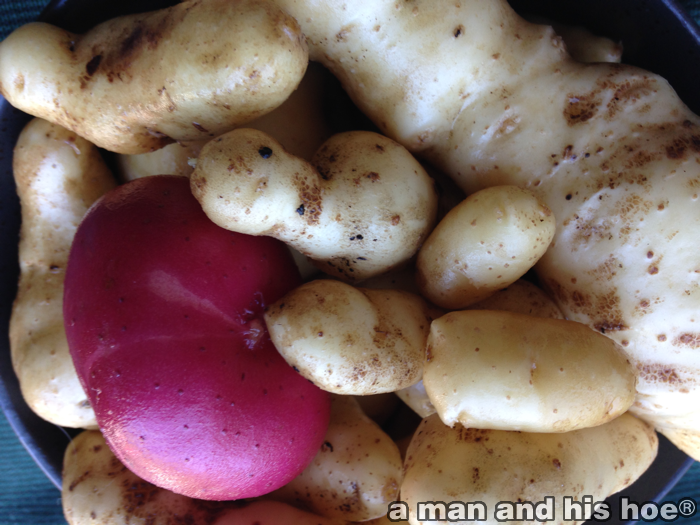
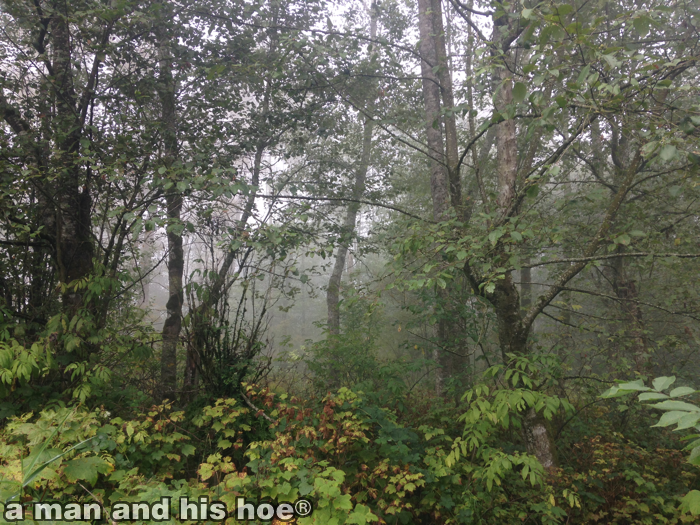
Fall mornings often start misty. These cool, damp mornings smell so fresh. I’m not the only one who enjoys the cool, moist air. The clover along the garden path soaks in the fresh water drops. The mist soothes the drying chive flower. And earthworms enjoy the dewy earth.
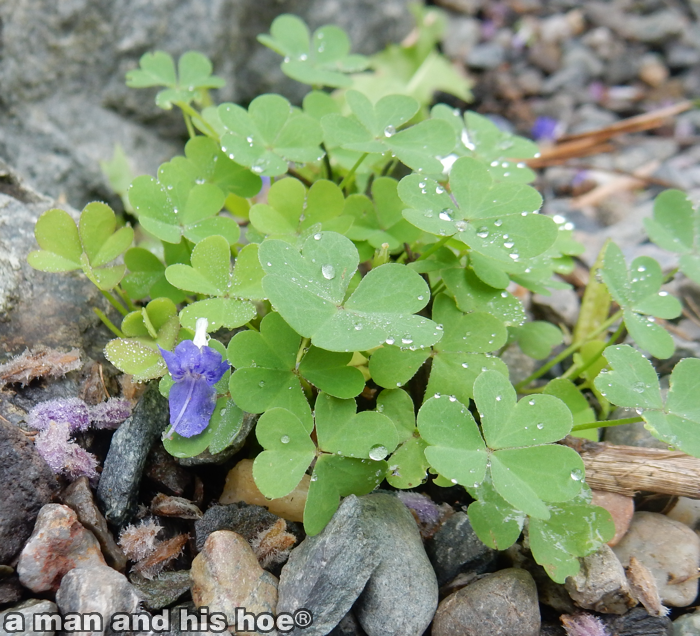
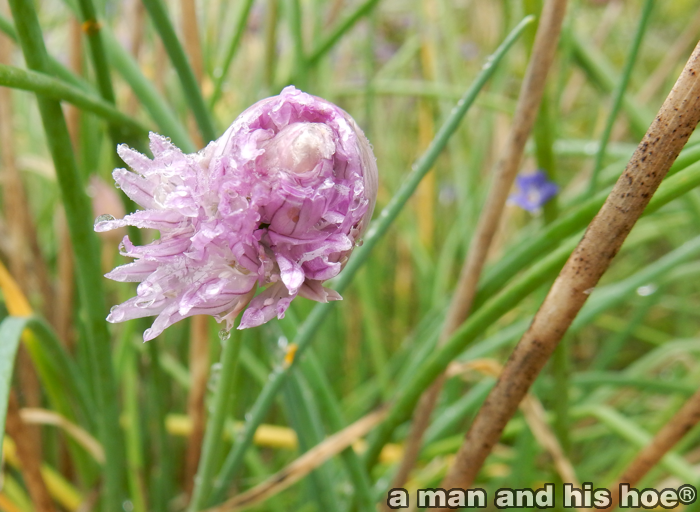
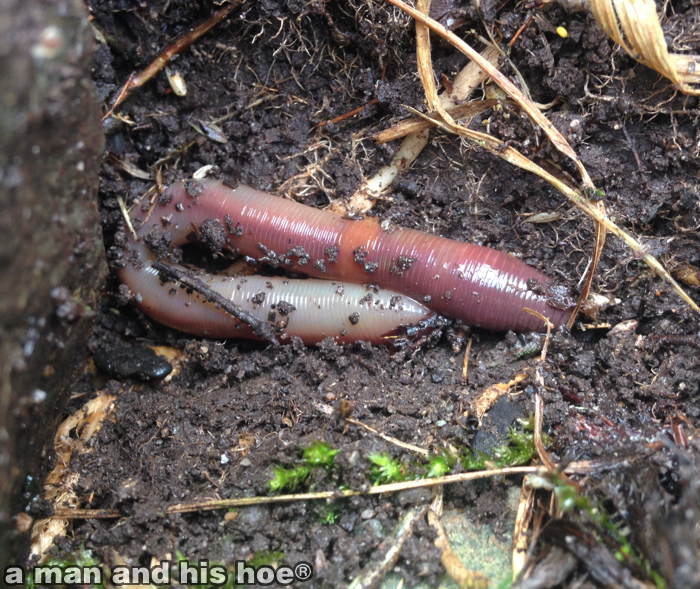
The afternoon sun evaporates the morning mist. Fall is in the air. It’s the last of the summer flowers. High above the canopy, the cottonwoods are turning golden. Growing up, I never considered cottonwoods to be among the tallest trees in the forest. I first became acquainted with cottonwoods in Kansas. There, due to the lack of rain, they are short, gnarled trees. Here, where there is no shortage of rain, they shoot up straight, spreading majestic branches high above most of the other trees. Odd how the same things grow so differently in different places.
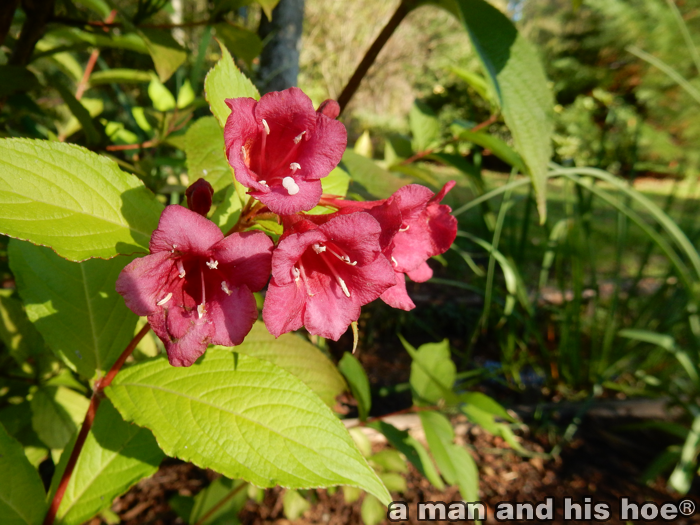
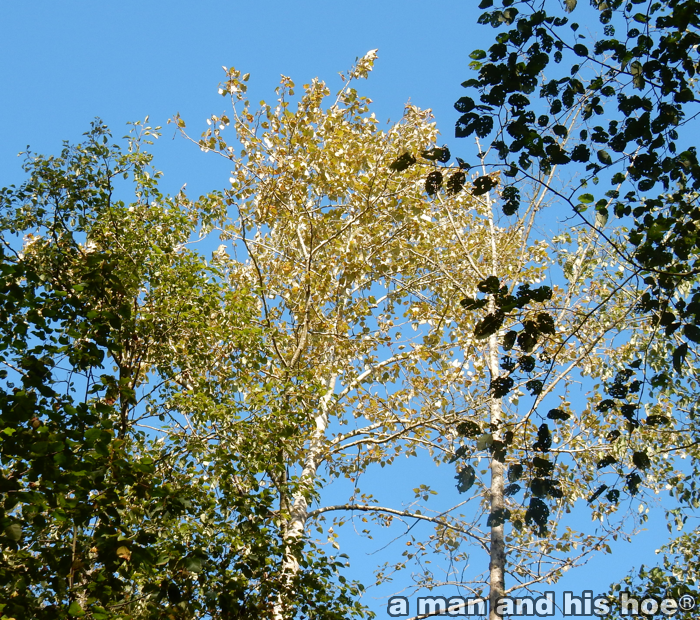
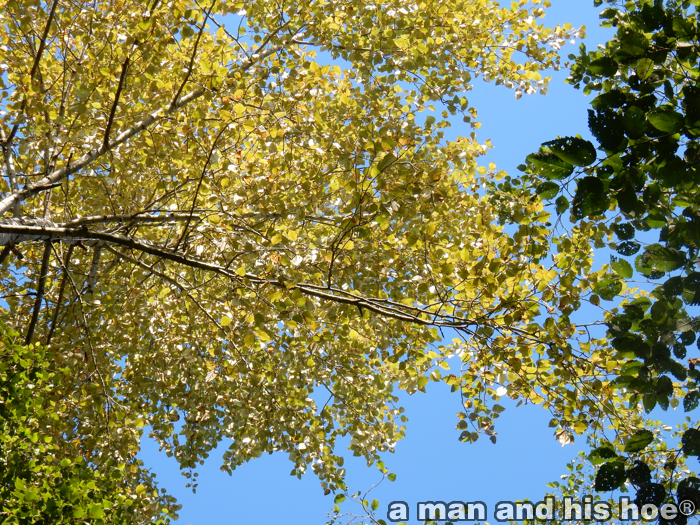
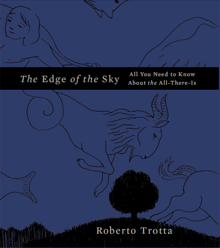 In The Edge of the Sky, astrophysicist Roberto Trotta, explains the origin of the universe using only the most 1,000 common words in English. His idea is to explain difficult concepts as simply as possible.
In The Edge of the Sky, astrophysicist Roberto Trotta, explains the origin of the universe using only the most 1,000 common words in English. His idea is to explain difficult concepts as simply as possible.
It’s an interesting book, and the simple explanations of the universe’s origin are fairly easy to follow, but since Mr. Trotta is using only the most 1,000 common words, he can’t use words like universe, planet, and galaxy because those words aren’t among the most 1,000 common English words. Even “thousand” isn’t among them. So how do you describe the origin of the universe when you can’t even use the word “universe”?
Mr. Trotta uses the phrase “All there is” in place of “universe”, “crazy star” for “planet”, “star-crowd” for “galaxy”, and “big-seer” for “telescope”.
You can get a feel for what writing, reduced to using only the simplest of words, reads like by reading a few excerpts from his book:
My college is in one of the most busy and beautiful cities in the world, which has a water road running through it and guards in red jackets and black head-covers. The head of state is a dear old lady who comes from a line that once had great power, and people in the street wave when they see her at her window.
We haven’t found Crazy Stars like our Home-World yet, but it’s only a question of time. Every day, student-people come up with new, better ways of looking for even smaller Crazy Stars, and soon they will find one that could have water and trees and animals and perhaps even people living on it.
At the time when many young people were growing long hair and asking for a better world without fights, a student-person called Doctor Rubin was the first woman to be allowed to use a Big-Seer.
So does Mr. Trotta succeed in explaining difficult concepts with simple language? At times, his writing becomes so stilted because he can’t use words like hydrogen and electrons, that I found myself trying to figure out what he was describing. Nevertheless, I enjoyed reading Roberto Trotta’s The Edge of the Sky.